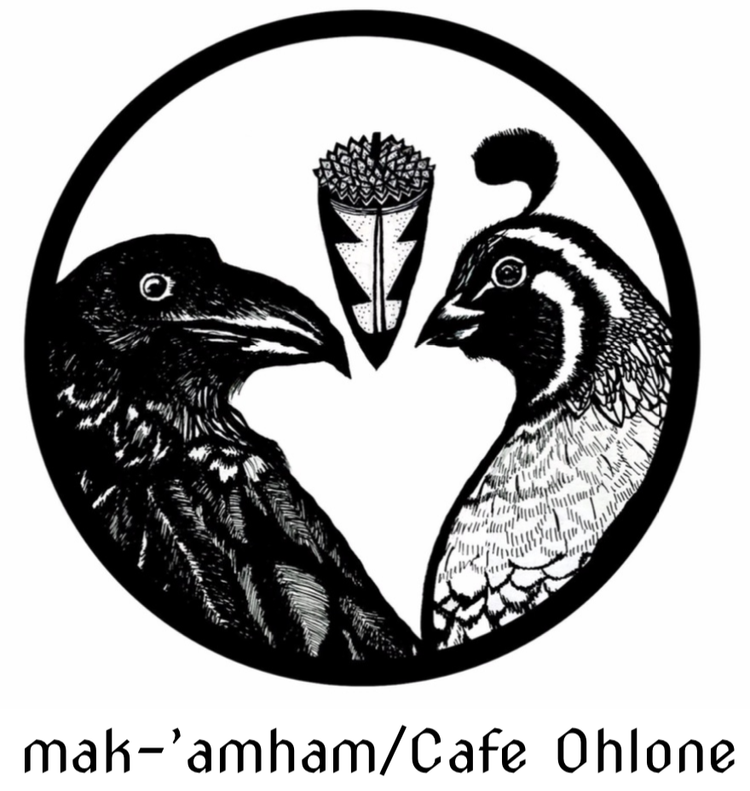We are two Ohlone people focused on sustaining our traditional Ohlone culture. We are proud of our Indigenous identities and we are leaders in the ongoing restoration of our languages: Chochenyo from the East Bay (Vincent) and Rumsen from the Carmel Valley (Louis). As we work together, we strengthen our identity by empowering our community with greater access to our specific cultural traditions, made possible by our elders’ leadership.
We have spent years working to gain fluency in the old-time culinary traditions of our Ohlone people; we listen to our elders' recollections of traditional Indian foods and, with their guidance, find ways to see these culinary traditions restored and passed on intergenerationally in our community. This effort is combined with documentation recorded by members of our Ohlone communities in the 1920s and 1930s from Sunol and Carmel. We have a deep and personal love for these specific foods.
In September of 2017, we created a cultural institution named mak-‘amham (Chochenyo for “our food”) to organize for the benefit of our Ohlone people. The birth of mak-‘amham allowed us to formalize a series of programs: cooking classes, gathering trips, high-toned dinners for our elders, weekly language classes, and cultural sessions. In the past couple years, we have added drop-offs of traditional foods to our elders. Our ongoing work has yielded great success in how much access our community has gained to these rich cultural traditions.
In September of 2018, we created Cafe Ohlone, originally located at University Press Books in Berkeley, and as of August 2022 located outside the Hearst Museum at UC Berkeley as part of the campus-wide ‘ottoy Initiative. Cafe Ohlone, the only Ohlone restaurant in the world, opened with two goals: to provide a physical space for our Ohlone people to be represented in the culinary world with a curated space that represents our living culture; and to educate the public, over Ohlone cuisine, in a dignified, honest manner about the original and continuous inhabitants of this land.
Cafe Ohlone’s work corrects outdated stereotypes and uplifts a truthful narrative of the historical conditions that shape the present day. On the campus of UC Berkeley, adjacent to an academic department that less than a century ago erroneously declared the Ohlone people extinct, mak-’amham and Cafe Ohlone enact ‘oṭṭoy — a philosophy and intention of repair and mending — bringing the university community as well as the broader community together with the East Bay Ohlone community to promote a clearer understanding of the lived experiences of the East Bay Ohlone people throughout history; to encourage a healthier relationship between the university and the East Bay Ohlone people; and to infuse the campus community with specific cultural wisdom, history, culinary practices, and aesthetics. This transformative, reciprocal project, known as the oṭṭoy Initiative, stands as a testament to the strength and permanence of Ohlone people and culture.
Our work with mak-‘amham/Cafe Ohlone affords us the privilege to be cultural diplomats through representing the beauty and vibrancy of our living culture in an effective way. Through this work, we correct outdated stereotypes and misinformation that have lingered for far too long, while simultaneously teaching truths of our living culture, history, and unbroken, permanent relationship with the East Bay. Our work fosters understanding, respect, and the healing of old wounds. We are grateful to our undeniably strong elders who entrust us to lead this work. We are grateful to see Ohlone culture grow and expand before our eyes.

